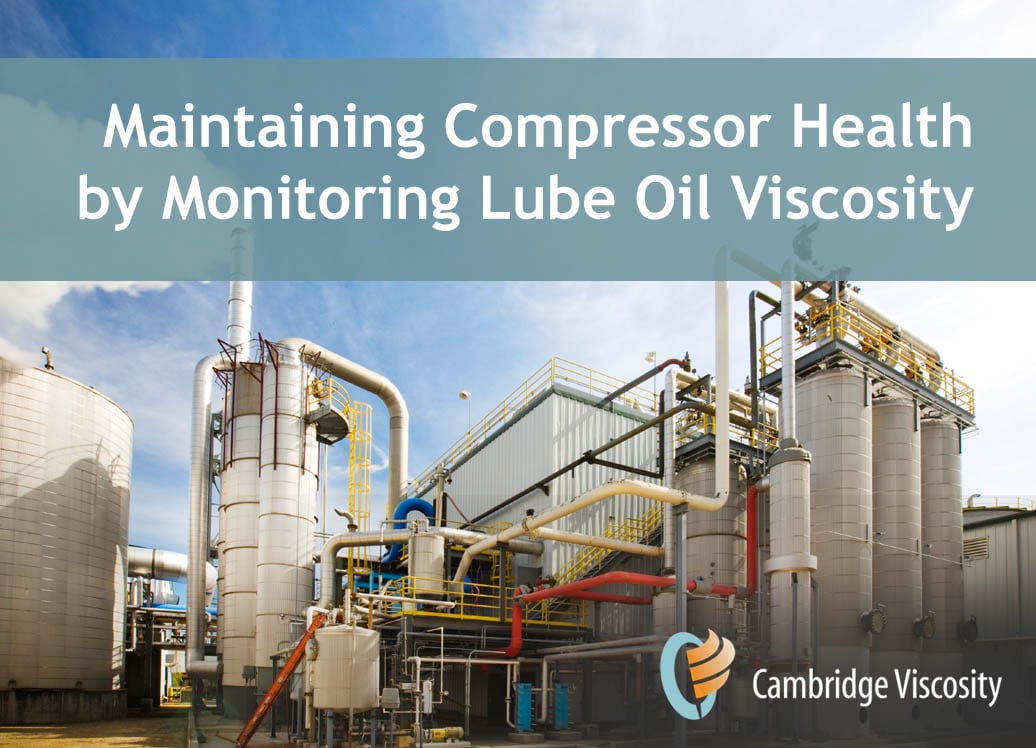 Managing lubricant viscosity is essential to maintaining the health of a compressor in a process plant, because a single compressor failure can cost $10,000 a day or more in lost revenue. Considering it’s another $10,000 to rebuild a compressor, or more than $100,000 to replace a compressor, maintaining the health and performance of compressors is important.
Managing lubricant viscosity is essential to maintaining the health of a compressor in a process plant, because a single compressor failure can cost $10,000 a day or more in lost revenue. Considering it’s another $10,000 to rebuild a compressor, or more than $100,000 to replace a compressor, maintaining the health and performance of compressors is important.
Many factors affect lube oil viscosity:
- Oxidation occurs when churning lube oil foams, exposing more oil to surface air and causing oxidation, which lowers viscosity and threatens useful lubricant life.
- Dilution results when lubricant oil is diluted with gas, such as methane, dropping viscosity.
- Bubbles form as foaming oil churns against the screws or vanes of the compressor, instantly dropping the viscosity of the oil.
- Contamination occurs when hydrocarbon vapors in the process mix with the lube oil
The situation can be further aggravated by significant changes in temperature – such as during start-up – that affect the viscosity of the underlying lube oil. A range of compressor failures can result. Rotary and thrust bearings can fail, which in turn causes wear on the rotor assembly. Replacing bearings is less costly than a total rebuild or replacement, but either way, the plant faces downtime.
While refineries commonly perform monthly lab checks, the unpredictability of viscosity changes means that these monthly checks are not enough to prevent bearing failure and subsequent plant downtime.
“Despite using separators, the lubricant can become diluted by gas carry-over or contamination. If left unchecked, this can cause problems, especially during subsequent start-ups.”
- Lead Engineer, Gulf Coast Refinery
Preventing Bearing Failure and Downtime
Refineries are finding that that monitoring lubricant temperature isn’t sufficient to protect compressor bearings, especially in applications where process starts and stops can occur. Despite using separators, the lubricant can become diluted by gas carry-over or contamination. If left unchecked, this can cause problems, especially during subsequent start-ups.
Refineries can protect their large hydrogen screw compressors to improve refinery uptime by adding in-line lube oil viscometers to all their new and existing units. In-line, in situ viscosity monitoring provides plant operations with real-time data on the lubricant viscosity.
The VISCOpro 2100, along with a 301 in-line viscometer sensor, provides real-time continuous monitoring of the compressor bearing lubrication fluid throughout equipment operations. This saves lab and technician time, and reduces the chance of damaging the equipment.
Results
- Save $10,000+ a day by avoiding unplanned shutdowns caused by compressor failure
- Identify contamination, oxidation, dilution, and bubbles
- Monitor viscosity across wide temperature swings
- Measure under pressures of 1,000 psi and temperatures up to 190 °C
We create a lot of great and relevant content, and we occasionally send out emails. Join our email list if you're interested.





